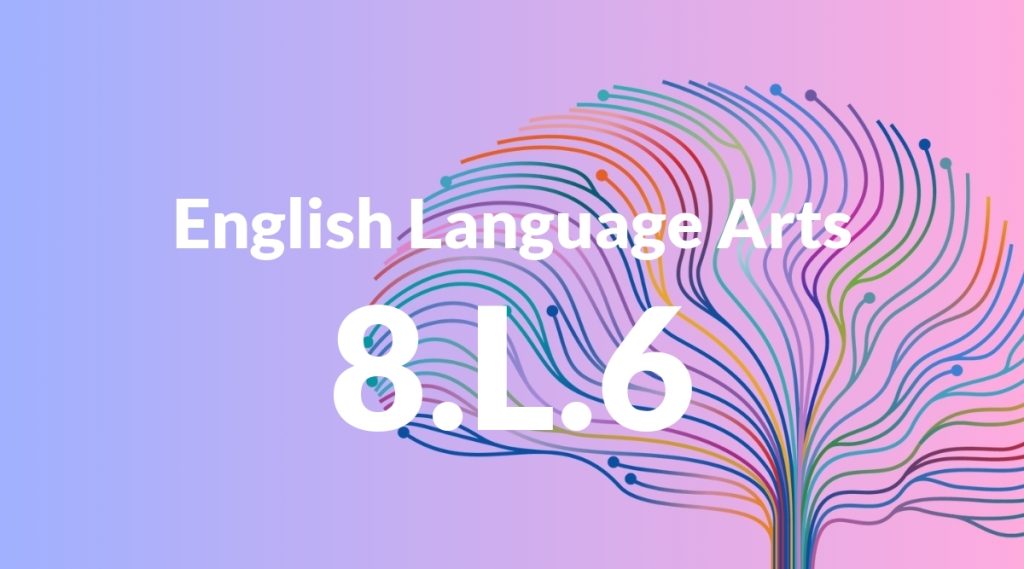Standard: 8.L.6 – Acquire and use accurately grade-appropriate general academic and domain-specific words and phrases; gather vocabulary knowledge when considering a word or phrase important to comprehension or expression.
Grade level: Grade 8
Subject: English Language Arts
Domain: Language
Teacher Overview
This standard focuses on the importance of acquiring and accurately using grade-appropriate vocabulary. It is essential for students to expand their vocabulary to improve their comprehension and expression in both academic and real-world contexts. Students should have a foundational understanding of basic English vocabulary and the ability to use context clues to infer the meaning of new words.
Mastering this standard will enable students to use a more sophisticated vocabulary in their writing and speaking, enhancing their ability to understand and engage with complex texts.
Common Misconception 1
A common misconception is that vocabulary learning is solely about memorizing definitions. This is incorrect because true vocabulary acquisition involves understanding how to use words in various contexts.
Intervention 1
To address this misconception, provide students with opportunities to use new vocabulary in different contexts, such as writing assignments, discussions, and projects.
Common Misconception 2
Another misconception is that once a word is learned, it doesn’t need to be reviewed. This is incorrect because vocabulary retention requires regular review and practice.
Intervention 2
Use spaced repetition techniques and incorporate regular vocabulary reviews into the curriculum to help students retain new words over time.
Prerequisite Knowledge
Students should have a basic understanding of common English vocabulary and the ability to use context clues to determine the meaning of unknown words.
Subsequent Knowledge
After mastering this standard, students will be able to use a more sophisticated vocabulary in their writing and speaking, and better understand complex texts across all subjects.
Instructional Activities
- Create a vocabulary journal where students record new words and use them in sentences.
- Conduct vocabulary quizzes that focus on usage rather than just definitions.
- Engage students in group discussions where they must use new vocabulary words.
- Assign reading passages that include grade-appropriate vocabulary and have students identify and define new words.




